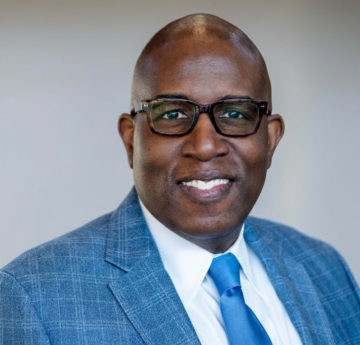Bouchet Society Lecture
Building Access, Strengthening Evidence, and Advancing Impact for Research and Practice
Date: March 17, 2026
Time: 12:15-1:30 pm ET
Primary Location: G10 Biotechnology Building (Zoom option is available for whom in-person engagement is not a viable option.)
Speaker: Ozias A. Moore, Ph.D. ’16, Associate Professor of Management in the College of Business at Lehigh University
Session Summary:
What shapes access to the relationships, resources, fair evaluation, and learning opportunities that individuals need to succeed in organizations — and what stands in the way? In this Bouchet lecture, Dr. Ozias A. Moore addresses these questions through findings from his multi-method research program, organized around four central themes: access to supportive relationships and resources, access to fair evaluation, access to learning, and access to trustworthy knowledge. Drawing from diverse theoretical perspectives and research designs, including field studies, experiments, and archival and longitudinal research, he examines how people rebuild professional networks and performance after organizational disruption, how bias enters hiring and career decisions, how team structure shapes the way people learn from one another, and how AI literacy influences trust when collaborating with generative AI. He also addresses why transparency in how we conduct research matters for building trustworthy knowledge. Taken together, these findings demonstrate that the conditions shaping access to relationships, evaluation, and learning are interconnected, with implications for both organizational practice and how we advance research. The lecture will foster insights and meaningful discussion to guide future directions, in ways that reflect the Bouchet Graduate Honor Society’s qualities of scholarship, leadership, character, service, and advocacy.

About our speaker:
As a Cornell Bouchet Society alum, Dr. Ozias A. Moore is an Associate Professor of Management in the College of Business at Lehigh University. He has also held a Visiting Assistant Professor of Management position at the Wharton School of the University of Pennsylvania. His research spans individual and team levels of analysis, with an overarching focus on how individuals effectively work across boundaries in dynamic organizational settings. He examines how dynamic team composition, in particular multiple team membership (MTM), and the microdynamics of social networks shape within- and between-team interactions and team effectiveness, and how personal characteristics and contextual factors influence evaluation, decision-making, diversity, and learning for employees and leaders. His research has been published in journals, including the Academy of Management Review, Journal of Applied Psychology, Computers in Human Behavior: Artificial Humans, Group & Organization Management, The Leadership Quarterly, Journal of Occupational and Organizational Psychology, and Personnel Psychology. He serves on the editorial review boards of the Journal of Organizational Behavior and the Journal of Management Studies.
Dr. Moore’s research findings have been featured in popular media outlets. He has received national and university-wide recognition for excellence in teaching, including being named among the Top 50 Undergraduate Business Professors by Poets & Quants and receiving the Lehigh University College of Business Teaching Excellence Award. While at Cornell, he was a Graduate School Dean’s Scholar and received the Toni Morrison Award for Graduate Mentorship. Before completing his Ph.D., he held management and executive-level positions at Westinghouse Electric Corporation, IBM Corporation, American Express, and Pfizer, Inc. He is also a certified Project Management Professional (PMP®) through the Project Management Institute (PMI).
Dr. Moore earned a B.S. in Business Administration from the University of Pittsburgh, an M.S. in Engineering from the University of Pennsylvania, and an M.S. and Ph.D. in Human Resource Studies from the School of Industrial and Labor Relations at Cornell University.
About the Edward A. Bouchet Graduate Honor Society:
Yale University and Howard University established the Edward A. Bouchet Graduate Honor Society in 2005. Named for the first African American doctoral recipient in the United States (Ph.D. from Yale University in 1876), the Bouchet Society recognizes outstanding scholarly achievement and promotes excellence in doctoral education and the professoriate. Outside of the society’s founding universities, Yale and Howard, Cornell was among the earliest universities to establish a chapter of the Bouchet Society with its first members inducted in 2006.
The Bouchet Society seeks to develop a network of preeminent scholars who exemplify academic and personal excellence, foster environments of support and serve as examples of character, leadership, advocacy, scholarship, and service. In the spirit of Bouchet’s commitment to these pursuits both within and beyond the academic realm, inductees into the honor society exhibit these qualities through their leadership, research, and service.
Initiated in 2024, the Annual Bouchet Society Lecture at Cornell University provides an opportunity to highlight Bouchet alumni who are making meaningful contributions to academia and society more broadly through their scholarship, leadership and service.
